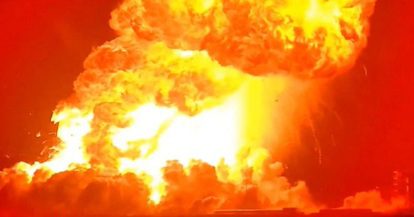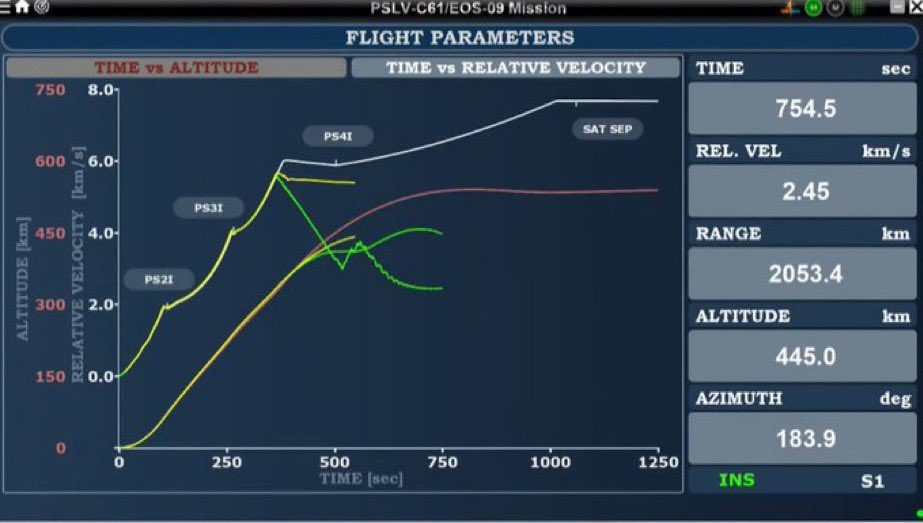While gambling bookmakers, opinion pollsters, and election forecasters are currently split as to the likely outcome of the US Presidential Election, most are agreed that it will be the key “swing states” that will decide the election via the electoral college system. As such, it is surprising that both candidates have been reticent on the subject of space. This is, in spite of the fact that Florida which depends more than most on the US national space programme, is widely regarded as a key swing state.
Things have become a little clearer since ScienceDebate website has sent published the answers that each candidate gave questions asking about their science and space policy. While their answers are often dressed in banalities of political electioneering (usually statements that everyone agrees with but do not indicate detailed policy) nevertheless interpeting their answers is illuminating. Subsequent to this the Obama for America-Florida campaign has released a list of Obama’s claimed “space accomplishments”.
Obama did good things for space (sometimes voluntarily)
President Barack Obama has, of course, had mixed fortunes with his space policy. The conclusion of Augustine Committee that Project Constellation was “not executable” under its planned funding levels, led President Obama to end Project Constellation. At the same time, while he did add extra flights, he decided to follow through with the Bush decision to end the costly Space Shuttle operation – though this was now to take place before a manned replacement was ready. This caused consternation amongst US Senators and fomer astronauts (including the late Neil Armstrong) that NASA was to become reliant on Russia to get its astronauts into orbit – at least until a replacement was ready.
Obama had previously made the controversial decision to fund commercial operators developing systems to supply NASA and the International Space Station with cargo and crew transportation. This policy, which was much criticised at the time, is now being applauded as it has successfully progressed. Even concerns about crew safety have been somewhat assuaged by the development of hi-tech escape rocket systems.
Nevertheless, while NASA shoujld soon be able to fly its astronauts into orbit by itself, without Project Constellation, for a time it appeared to be left without the means to perform proper exploration of the Moon, asteroids or solar system. The White House was, at the time, also being accused of being deliberately vague over future exploration plans.
This became even more apparent with the White House’s post-Constellation refusal to commit to the fast building of a new heavy lift rocket to replace Costellation’s Ares V. The US Senate eventualy intervened and, under pressure, the White House and NASA agreed to the construction of the Space Launch System (SLS) rocket.While his supporters do try to include Obama’s support for SLS in his list of accomplishments, in truth, President Obama’s hand was forced into starting this programme.
Obama tries to look decisive
Sensitive to these claims of past exploration policy vagueness, Obama declares in his Science Debate responses that he has already set a goal of astronauts visiting an asteroid by 2025 and going to Mars in the 2030s.
“When our Orion deep space crew vehicle takes its first test flight in 2014, it will travel farther into space than any spacecraft designed for humans has flown in the 40 years since our astronauts returned from the moon. That is progress.” notes Obama.
Obama had, in fact, originally planned to cancel the Orion Crew Exploration Vehicle. When opposition crew as a compromise, Obama attempted to designate it a space station crew lifeboat. In the end NASA was allowed to develop it fully as an exploration vehicle under the offical name of Multi-Purpose Crew Vehicle.
This decision, along with the development of SLS, has allowed NASA to maintain its leadership in exploratory spaceflight. As President Obama tries to take credit for these choices, in truth he knows that he really has been a reluctant supporter of the US manned space programme.
With respect to unmanned space exploration and research Obama is on surer ground – though NASA budget restrictions are causing some unmanned missions to be cancelled, Nevertheless, his supporters note his support for climate change research including related Earth observation space missions. Obama was also careful to pay tribute to the achievment involved in the landing of NASA’s Mars Curiosity Rover.
Romney has weaknesses of his own
Meanwhile, Mitt Romney has his own weaknesses. As he praises the role of private enterpise in the space programme, Romney’s Republican party remains split between wanting to support Obama’s initiative on commecial space and wanting the US Space Programme to remain in government hands. Now that the Obama plan looks likely to be successful, neither Romney nor the rest of his party, know how to repond.
“Space is crucial to technological innovation. says Romney in the ScienceDebate 2012 responses, before, adding. “If we want to have a scientifically trained and competent workforce, we must demonstrate a long-term commitment to the pursuit of innovation and knowledge.” Romney hints that past ITAR over-regulation had damaged space exports: “I will work to ease trade limitations, as appropriate, on foreign sales of U.S. space goods and will work to expand access to new markets.” he said.
At least, Romney agrees with Obama that space is a high value technology that is both milarily useful and a valuable source of trade and educational inspiration. Both candidates note that they are in favour of continued international cooperation in space. “We have extended the life of the International Space Station, forwarding efforts to foster international cooperation in space,” said President Obama.
While noting that space is essential for both national security and even national pride, nevertheless, Romney confirms that under him money for spaceflight would remain tight. Romney states: “A strong and successful NASA does not require more funding, it needs clearer priorities.”
NASA’s priorities would probably not include a Moon base. As a candidate for the Republican nomination, Romney famously rubbished his opponent Newt Gingrich’s plan for a Moon base by saying: “I spent 25 years in business. If I had a business executive come to me and say they wanted to spend a few hundred billion dollars to put a colony on the moon, I’d say, ‘You’re fired.'”
Conclusion: Space is fun but it is the Economy stupid
President Obama has made the correct decisions – even if for some of these he had to have his hand forced. However, while space policy might have an impact on Florida’s voters, it has to be realised that for most space is really a sideshow to the economy. If Obama can convince on that subject he will be re-elected – if not – he won’t.
POST SCRIPT: Obama should be winner say betting markets – not so fast say forecasters
The Iowa Electronic Market, a futures market set up by the University of Iowa that allows traders effectively to bet on who willl win the Presidential race, currently has the incumbent President Barack Obama of the Democratic Party as favourite in the election. He was, at the time of writing in early September, ahead of Mitt Romney of the Republican Party (GOP). According to past elections, the market has been a reliable indicator of the result. British bookmakers have apparently taken this lead and currently also have President Obama as the odds-on favourite for the November election. Of course things may yet change in these “betting markets” – probably according to how the US economy goes.
Political analysts at University of Colorado have found that the economy is the best predictor of U.S. presidential elections since 1980. On the basis, their current prediction is that the 2012 winner will be Mitt Romney. Meantime, recent opinion polls show a very close race with Obama just edging ahead of Romney after being behind for some time.







